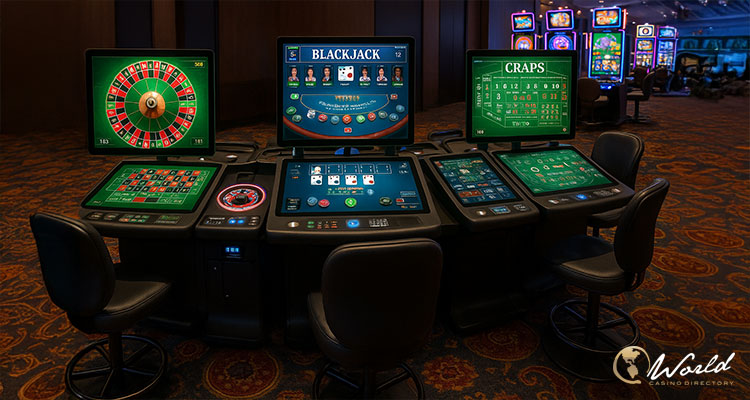The Kentucky Horse Racing and Gaming Corporation (KHRGC) has moved forward with a major policy shift, voting nearly unanimously to authorize historical horse racing (HHR) machines that incorporate electronic table-game themes. The approval marks a notable departure from earlier skepticism toward such products, signaling regulators’ willingness to allow new gaming formats as Kentucky seeks to keep pace with neighboring states that already offer live table games.
Regulators emphasize competitiveness and broader machine flexibility
The original request under review involved a roulette-themed HHR terminal created through a collaboration between Churchill Downs Inc. (CDI), its subsidiary Exacta Systems, and Interblock Luxury Gaming Products. The system had already been tested by Gaming Labs International to verify compliance with state requirements. Rather than limit the decision to roulette specifically, KHRGC vice president of gaming Travers Manley urged commissioners to approve the broader category of electronic table-game themes, noting that more proposals — including poker and blackjack formats — would likely follow.
Several board members supported the expansion as essential for Kentucky’s long-term competitiveness. “We can’t get complacent,” said Thoroughbred trainer and U.S. Senate candidate Dale Romans, who serves as a KHRGC director. He reminded commissioners that tracks across the state face “live casinos right now all along the Kentucky border.” Fellow director Bill Landes offered similar reasoning, stating: “I really believe these machines allow Kentucky to remain competitive with the competition from adjoining states.”
The lone dissenting vote came from Catherine Parke, owner of Valkrye Stud near Lexington. She raised concerns about the visual design of the terminals, questioning why roulette-themed machines featured no horse imagery. CDI senior vice president Justin Paul responded that Interblock controls the aesthetics. “Our development partner Interblock actually makes all the terminals,” he said. “The terminals are used elsewhere outside historical horse racing as well, so I’m not sure how feasible it would be to change out the signage and physical components of the machines.” KHRGC chairman Jonathan Rabinowitz asked Paul to explore possible modifications despite the uncertainty.
Broader regulatory movement and ongoing rule changes
The vote occurred during a period of heightened regulatory activity surrounding HHR machines. Earlier, the KHRGC advanced a separate rule change allowing operators to use pari-mutuel race data from racetracks outside the United States, expanding beyond domestic sources. That proposal will proceed to public comment and then to the Legislative Research Commission for further consideration.
Churchill Downs Inc., which operates numerous facilities offering HHR games, backed the international data proposal. According to Horse Racing Nation, Justin Paul told commissioners that racing results from after 1992 or 1993 are the most effective for building competitive gaming products, especially as larger racing fields have grown less common within the United States. Paul also emphasized that adopting expanded data sources is not primarily a financial matter but a step to ensure “new data available so that our innovative products can keep up.”
Not all stakeholders supported this rule change. Equibase, the industry’s official data provider, argued against the amendment, with CEO Kyle McDoniel stating, “We believe this proposed amendment is not necessary, and that this matter will be best addressed by working this issue out by agreement among the affected parties.” McDoniel noted that Equibase supplied its last large data transfer for HHR systems in 2020.
The proposal prompted broader concerns from commissioners about transparency and communication between CDI and Equibase. One commissioner’s written statement cautioned regulators to consider “the implications of one of our licensees owning an HHR manufacturer” and urged more thorough review going forward. Commissioner Kerry Harvey also voted against the rule change, saying he lacked independent analysis to determine whether CDI’s or Equibase’s position was more accurate.
Although the KHRGC has not specified when the newly approved electronic table-game themes will become available to players, the agency’s actions represent a significant evolution in Kentucky’s regulated gaming landscape. With technology providers expected to submit additional theme variations in the coming months, HHR machines across the state are poised for a new phase of development — one geared toward keeping Kentucky competitive in a rapidly changing regional gaming market.


